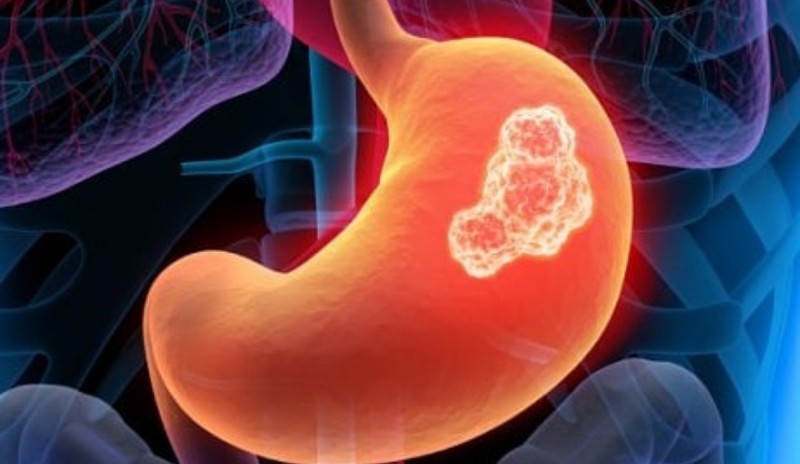
Gastrointestinal (GI) disorders encompass a range of conditions that affect the digestive system, which plays a vital role in breaking down food and absorbing nutrients. From common digestive issues like acid reflux and constipation to chronic disorders like irritable bowel syndrome (IBS) and inflammatory bowel disease (IBD), these disorders can significantly impact an individual's digestive health and overall well-being. This article aims to provide a comprehensive understanding of gastrointestinal disorders, their causes, symptoms, diagnosis, treatment options, and strategies for managing and promoting digestive health.
1. What are Gastrointestinal Disorders?: Gastrointestinal disorders refer to a group of conditions that affect the digestive system, including the esophagus, stomach, intestines, liver, gallbladder, and pancreas. These disorders can range from acute, self-limiting issues to chronic conditions that require long-term management. They can cause a variety of symptoms and impact digestion and nutrient absorption.
2. Common Gastrointestinal Disorders: There are numerous gastrointestinal disorders that affect individuals of all ages. Some common examples include acid reflux (GERD), peptic ulcers, gastritis, irritable bowel syndrome (IBS), inflammatory bowel disease (IBD), celiac disease, diverticulitis, gallstones, and liver diseases such as hepatitis and cirrhosis. Each condition has its own unique characteristics, treatment approaches, and potential complications.
3. Causes and Risk Factors: Gastrointestinal disorders can have various causes and risk factors. These can include genetic factors, dietary habits, infections, inflammation, autoimmune responses, stress, hormonal changes, certain medications, and lifestyle factors such as smoking or excessive alcohol consumption. Understanding the underlying causes and risk factors is important for effective management and prevention.
4. Signs and Symptoms: The signs and symptoms of gastrointestinal disorders can vary depending on the specific condition. Common symptoms include abdominal pain, bloating, indigestion, heartburn, nausea, vomiting, diarrhea, constipation, changes in bowel habits, unexplained weight loss, and blood in the stool. It is important to recognize these symptoms and seek medical attention for proper diagnosis and treatment.
5. Diagnosis and Medical Tests: Diagnosing gastrointestinal disorders involves a combination of medical history evaluation, physical examination, and diagnostic tests. These may include blood tests, imaging studies (such as X-rays or CT scans), endoscopic procedures, stool tests, breath tests, and biopsies. An accurate diagnosis helps determine the appropriate treatment plan.
6. Treatment Approaches: The treatment of gastrointestinal disorders depends on the specific condition and its severity. Treatment approaches may include medications to relieve symptoms, manage inflammation, or treat underlying infections. Lifestyle modifications, dietary changes, stress management techniques, and, in some cases, surgery or other interventions may also be recommended. Treatment plans are tailored to individual needs.
7. Dietary and Lifestyle Management: Dietary and lifestyle management play a crucial role in managing gastrointestinal disorders. This can include following a balanced and nutritious diet, identifying and avoiding trigger foods, practicing portion control, staying hydrated, incorporating regular physical activity, managing stress levels, and maintaining a healthy weight. Working with a registered dietitian can provide personalized dietary guidance.
8. Managing Gastrointestinal Disorders: Managing gastrointestinal disorders involves a multidisciplinary approach. This may include regular follow-ups with healthcare professionals, adherence to treatment plans, monitoring symptoms and triggers, taking prescribed medications as directed, practicing good hygiene, and seeking support from patient advocacy groups or support networks. Open communication with healthcare providers is key.
9. Impact on Daily Life: Gastrointestinal disorders can significantly impact an individual's daily life. Symptoms such as pain, discomfort, dietary restrictions, medication management, and lifestyle adjustments can affect work, social activities, and overall well-being. Implementing self-care strategies, seeking support from healthcare professionals, and having a strong support system are important for managing daily challenges.
10. Gastrointestinal Disorders and Mental Health: Living with gastrointestinal disorders can have an impact on mental health. Chronic pain, dietary restrictions, social limitations, and the unpredictability of symptoms can lead to anxiety, depression, and a reduced quality of life. It is important to address mental health concerns by seeking support from healthcare professionals and considering counseling or support groups.
11. Promising Research and Future Directions: Ongoing research aims to advance our understanding of gastrointestinal disorders and improve treatment options. Researchers focus on identifying disease mechanisms, developing targeted therapies, exploring the gut microbiome's role, and investigating personalized medicine approaches. Continued research holds the potential for more effective management and tailored treatments.
12. Support and Resources for Gastrointestinal Disorders: Living with gastrointestinal disorders can be challenging, but there are numerous support systems and resources available. These include healthcare professionals, patient support groups, educational materials, online communities, and reputable websites. Connecting with these resources can provide valuable information, emotional support, and practical guidance for individuals and their families.
13. Conclusion: Gastrointestinal disorders can significantly impact digestive health and overall well-being. Understanding the causes, symptoms, diagnosis, treatment options, and strategies for managing these disorders is crucial for individuals and healthcare providers. By adopting healthy lifestyle practices, following medical recommendations, seeking support, and staying informed, individuals can strive towards better digestive health and an improved quality of life.
"Taking Control of Your Breath: A Comprehensive Guide to Respiratory Health"
"Unmasking Autoimmune Diseases: Understanding the Body's Immune Response Gone
Awry""Unmasking Infectious Diseases: A Comprehensive Guide to Understanding and Preventing Infections"